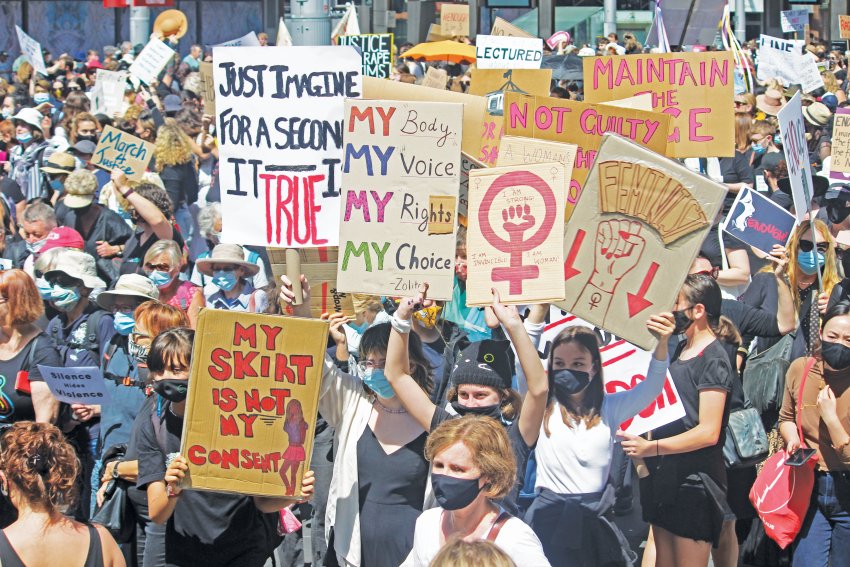
Long awaited sexual consent law reforms have been introduced to New South Wales parliament after years of campaigning by sexual assault survivors and feminists forced a review by the Law Reform Commission.
NSW Attorney-General Mark Speakman introduced the bill on October 20. It includes a requirement for affirmative consent, meaning people need to actively communicate their consent, and it recognises that consent can be withdrawn.
It is estimated that only 1-in-10 reported cases of sexual assault results in a conviction.
The bill comes after high-profile allegations by former Liberal party staffer Brittany Higgins against a colleague and allegations against former Attorney-General Christian Porter sparked national conversation about sexual assault, leading to more than 100,000 people joining #March4Justice rallies across the country in March.
The campaign for law reform in NSW has been driven by many but in particular Saxon Mullins, director of advocacy at Rape & Sexual Assault Research & Advocacy (RASARA), and 23-year-old Chanel Contos, who publicly shared her experience of sexual violence at school.
Mullins accused Luke Lazarus of raping her in a Kings Cross laneway in 2013, when she was 18. After two criminal trials, in which Lazarus was found guilty and then acquitted two years later, the Law Reform Commission was given the job of examining the state’s consent laws.
More than two years later, it came back with 44 recommendations last November. It has taken nearly a year for the bill to be introduced.
The current law’s antiquated consent provisions put the responsibility on the person being assaulted to communicate that they do not want to be. Mullins’ lack of active consent was not enough to convict Lazarus.
The Law Reform Commission’s 270-page report recommended the law be changed. Speakman’s bill introduces a requirement for affirmative consent.
Mullins told SBS News in May that consent reforms are “an important step into changing the way we talk about sexual violence and hopefully one small step towards ending it”.
If passed, the new bill would bring NSW into line with other states, such as Victoria and Tasmania, where consent laws were changed in 1991 and 2004 respectively.
Jenny Leong, NSW Greens spokesperson for Women’s Rights, welcomed the reform. “To have consent back on the agenda of NSW Parliament … demonstrates that this movement for change that started with tens of thousands marching and declaring ‘enough is enough’ at the start of the year is still going strong,” she said.
A petition, sponsored by Leong, calling for holistic consent education reform, was signed by more than 20,000 people.
Another initiative, Teach Us Consent, initiated by Contos to address the lack of sexual education in schools, has attracted more than 44,000 signatures and encouraged more than 6500 people to share their personal experiences of sexual assault.
RASARA executive director Rachael Burgin told SBS News: “We still need to make sure the bill passes, but the bill is a huge win for survivors”.